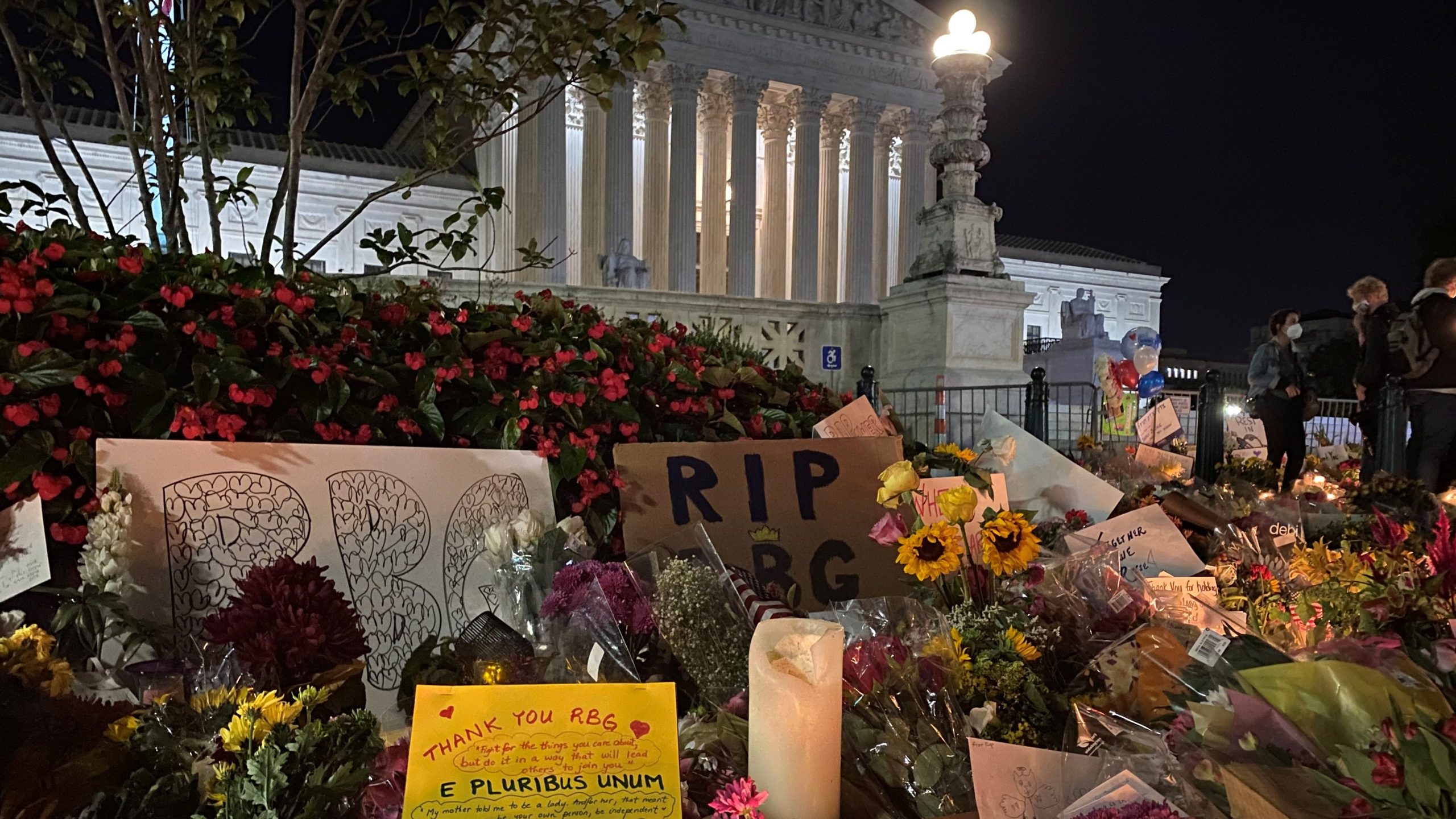Our Vote, Our Voice: Honoring the Legacy of RBG
September 24, 2020
By Leticia Tomas Bustillos, AAUW Action Fund Federal Policy Manager

Our right to vote has had a long and tumultuous history. A right that was too often met with intimidation and violence after passage of the 15th amendment, or deliberate obstacles such as literacy tests and polling taxes in the Jim Crow south that effectively prevented eligible Black and Latino voters from casting their ballots. Or the vote was outright denied, as it was to women in the first two centuries after the birth of America. But those actions and tactics are not a thing of the past. Hours-long lines at the polls in Georgia and Wisconsin amidst a pandemic; supporters of one party attempting to disrupt early voting in Virginia; Florida’s governor signing a law overturning the will of the people and preventing formerly incarcerated individuals from voting; and the President publicly casting doubt without evidence on the legitimacy of absentee ballots, all challenge our right to vote today. These are all indelible images playing out this election season on our television and computer screens, making it clear that our right to vote is not just at risk, but is under active threat.
The Voting Rights Act (VRA) of 1965 was signed into law because it was “deadly wrong,” as President Lyndon Johnson stated, to deny any American the right to vote. The landmark legislation included critical provisions to ensure no external forces would deny us our rights. However, on June 25, 2013, the Supreme Court ruled in Shelby County v. Holder that part of the law was unconstitutional because times had changed and it no longer applied.
Justice Ginsburg disagreed vehemently. Her dissent was blistering. She called the court shortsighted in relying on increased voter participation as a sign of progress rather than the extensive record showing that the provisions of the law had been effective in preventing voter discrimination, especially against racial minority groups. She called the decision to throw out existing tools as the equivalent to “throwing away your umbrella in a rainstorm because you are not getting wet.” Her dissent was especially prescient, saying the fight against voter discrimination “resembled battling the Hydra. Whenever one form of voting discrimination was identified and prohibited, others sprang up in its place.” True to her remarks, the immediate result of the majority opinion could be seen within 24 hours – strict voter ID laws in Texas, Mississippi, and Alabama and curtailment of all early voting and elimination of same day registration in North Carolina. All voter suppression tactics that render moot the original intent of the law.
AAUW Action Fund Fact Sheet: 2020 Presidential Candidates on Voter Access
I heard the news of Justice Ginsburg’s passing and immediately felt deep sadness, knowing that we lost a true icon of jurisprudence who did so much to raise awareness, call out discrimination, and demand justice on behalf of women and marginalized communities. But superseding these emotions were my feelings of fear and eventual anger. Fear of the consequences her passing has on our right to access affordable health care, to control what happens to our bodies, to work without fear of harassment or gender discrimination, and to know that families will continue to be separated by appalling immigration policies. Most of all I am angered by the fact that in this time of hyper partisanship we are unable to properly mourn her passing and honor the legacy of a quiet but mighty force; instead we find ourselves waging a campaign to preserve the dignity of her Supreme Court seat.
It has been widely reported that her most fervent wish is to not be replaced until a new president has been installed. It is clear that many are working hard to disregard that final wish. So it is left up to us to ensure her legacy carries on. Our vote is our voice. The events surrounding 2020 have illuminated persistent, seemingly intractable inequities and injustices that affect us all in different ways. I am a woman, a Latina, a first generation American, a mother, and a person with pre-existing conditions. What has happened in the last four years, and decisions that will be made in the coming weeks and months, affect me personally, have detrimentally harmed my community, and harshly divided this country I love. Even if our elected leaders are unwilling to stand by what is right, we as voters can and we must, without hesitation or delay. In honor of RBG, I will vote and use my voice to say, “I dissent.”
For more direct analysis on these issues, click here for the AAUW Action Fund Fact Sheet: 2020 Presidential Candidates on Voter Access.
